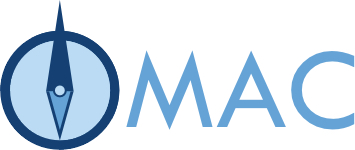THE MODEL ARCTIC COUNCIL FORMAT
Polar Aspect MACs such as OMAC offer an exciting new format of model diplomacy. What makes MAC unique amongst diplomatic simulations is also what makes the Arctic Council unique amongst intergovernmental organisations—the full participation of Arctic Indigenous peoples alongside Arctic states, and the rule of consensus for all decisions. Delegates must rise to the diplomatic challenge of negotiating the bridging solutions that bring these states and peoples together over difficult issues, in full unanimity and with no recourse to a majority vote.
In today’s divided and hyperpartisan political climate, this emphasis on inclusive consensus makes OMAC and other Polar Aspect MACs special. But the rigours of building consensus on difficult issues can test even veteran diplomats. Prospective Polar Aspect MAC delegates—especially those accustomed to the often more gladiatorial style of Model United Nations—might wish to benefit from training ahead of their conference. Prospective delegates may also find it helpful to learn more about the Arctic, where questions of environment, development and ancient culture overlap in complex ways.
With this in mind, Polar Aspect are delighted to offer OMAC Delegate Training, a four-week programme designed to introduce the Arctic, the Arctic Council and the Model Arctic Council format. Participants in OMAC Delegate Training will also learn strategies for good research and preparation before the conference, as well as for effective negotiation and consensus building at the conference.
OMAC DELEGATE TRAINING
Prospective delegates to any Polar Aspect MAC —whether OMAC or one of our in-person MACs—are welcome to take advantage of the OMAC Delegate Training programme. Training rounds occur at intervals over the academic year, and dates of upcoming training rounds are available at registration. Each training round takes place over four consecutive weeks, normally on a Saturday, with each weekly session approximately two hours in duration.
Exact session times vary from training round to training round, in order to accommodate different time zones. Prospective delegates should register for a training round that best fits their time preferences. No matter the timings, however, each training round generally involves the following sessions:
- Week 1 – An introduction to the Arctic, the Arctic Council and MAC
- Week 2 – Researching Arctic issues and drafting MAC declarations
- Week 3 – Public speaking, negotiating and consensus building
- Week 4 – Practice MAC simulation
Each session is led by a Polar Aspect Associate with practical experience of MAC. Participants also have the opportunity to reflect on their learning in discussion with Polar Aspect Managing Principal Dr Anthony Speca or other Arctic experts.
OMAC DELEGATE TRAINING HANDBOOK
Participants in OMAC Delegate Training are provided with a Delegate Training Handbook in advance of their training round, containing useful information about preparing for and participating not only in the training, but also in Model Arctic Council conferences.
ACKNOWLEDGEMENTS
Polar Aspect has been fortunate to benefit from support for OMAC Delegate Training from the following organisations.
- Arctic Portal (2020-present)
- MUN Impact (2020-2021)
